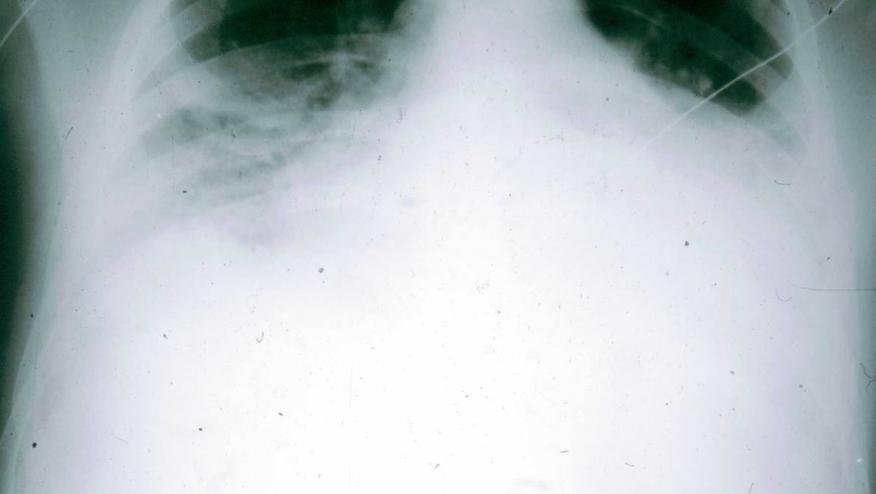Still’s Disease Following COVID-19 Vaccination Save

Both systemic onset juvenile idiopathic arthritis (sJIA) and adult-onset Still’s disease are acquired autoinflammatory disorders of uncertain etiology. Yet recent reports of AOSD onset and flare following COVID-19 vaccinations may have important mechanistic implications.
AOSD and sJIA are unified phenotypically by acute systemic onset of quotidian fevers, intermittent (non-facial) rashes, inflammatory polyarthritis, serositis, organomegaly, lymphadenopathy and an exuberant acute phase response seen in lab testing. After months to years of systemic inflammation, the disease may settle into a chronic, rheumatoid-like, inflammatory arthritis.
While there are no clear inciting events, up to 70% of adults will have a prodromal sore throat, suggestive of either an infectious trigger or activation of pharyngeal lymphoid tissues. Some have suggested a viral or infectious onset to the disease, but there is no consistency to these findings.
With the SARS-CoV-2 pandemic and increasing use of preventative vaccines, there has been rare reports of post-COVID vaccination immune or inflammatory events presenting as autoimmune or inflammatory disease flares, autoimmune hepatitis, myocarditis/pericarditis, TTP and more. Now there is a surge in AOSD events related to COVID-19 vaccination.
It should be noted that this linkage is rare, very rare, and that there are likely thousands of Still’s patients who have been vaccinated (COVID, influenza, etc) without flare or onset of AOSD. Hence these reports should not dissuade anyone, as the certain benefits of COVID-19 vaccination far outweigh the rare risk of an ultra-rare disorder, Still’s disease.
The NLRP3 inflammasome and hyperinflammation are mechanistically and classically involved in AOSD and other autoinflammatory disorders; however, the inciting activators are seldom evident. Prior to these COVID-19 vaccination links there have been other rare reports following vaccination against influenza, pneumococcus, etc. Below is a listing of AOSD cases linked to COVID-19 vaccination. There are also reports of 3 children with sJIA who flared following COVID-19 infection.
|
Reference |
1 |
2 |
3 |
4 |
|
Vaccine |
ChAdOx1 |
Moderna |
Pfizer |
Pfizer |
|
Age/Sex |
36M |
45F |
37F |
22M |
|
Comorbidity |
- |
NA |
NA |
- |
|
AOSD |
onset |
onset |
Recurrence (dx 13 yrs ago) |
onset |
|
Criteria met |
Yamaguchi |
Yamaguchi |
ND |
Fautrel Yamaguchi |
|
Fever |
38·9°C |
40°C |
39°C |
+ |
|
Rash |
typical |
yes |
typical |
yes |
|
Arthritis |
- |
Arthralgia myalgia |
Poly-arthritis |
Arthralgia myalgia |
|
Other |
ST, CP, serositis, HSM, LN |
ST, HA, pleurisy |
ST, LN |
ST, CP, diarrhea, hypotension |
|
Lag period (d) |
4d |
5d |
3d |
13d |
|
WBC |
31K |
29.9K |
9.8 |
>50,000 |
|
Ferritin |
1482 |
14,375 |
nl |
54,921 |
|
CRP |
188 mg/L |
277.8 |
21.6 |
260 |
|
ESR |
85 |
85 |
- |
- |
|
COVID test |
Neg. |
|
- |
neg |
|
Sx Duration |
4 weeks |
2 weeks |
2 mos. |
>2 mos |
|
Rx |
NA |
Pred 60/d anakinra |
Pred 15/d, tocilizumab |
Dexameth. IV pulse MP IVIG |
|
F/U |
|
Stable on meds at 2 mos |
Inactive after 4 mos |
|
|
Other |
myopericarditis |
- |
- |
Coxackie B4 |
We do know that hyperinflammation with COVID-19 is driven by the inflammasome and inflammasome activity drives macrophage driven inflammation and proinflammatory cytokine production. Secondly, SARS-CoV-2 spike protein may act as a pathogen-associate molecular pattern and activate the inflammasome, Lastly, the innate immune response following spike protein and ACE-2 receptor engagement will lead to NKFB activation and downstream proinflammatory cytokines (IL-6 and IL-1) leading to further reactivation of the NLRP3 inflammasome.
Hence, this 4 patient experience complements the literature that claims certain viruses may act as pathogen associated molecular patterns that can excite the inflammasome. There are likely host differences, wherein epigenetic changes to the inflammasome, results in an unregulated hyperinflammatory response, that does not self-regulate, leading to extended periods of inflammatory activity and a diagnosis of AOSD.
References
- Leone F, et al. Adult-onset Still's disease following COVID-19 vaccination. Lancet Rheumatol. 2021 Oct;3(10):e678-e680. https://www.ncbi.nlm.nih.gov/pmc/articles/PMC8298028/
- Magliulo D, et al. Adult-onset Still's disease after mRNA COVID-19 vaccine. Lancet Rheumatol. 2021; Oct;3(10):e680-e682 https://pubmed.ncbi.nlm.nih.gov/34316726/
- Yamamoto S, et al. Flare-up of adult-onset Still's disease after receiving a second dose of BNT162b2 COVID-19 mRNA vaccine. Clin Exp Rheumatol. Sep-Oct 2021;39 Suppl 132(5):139-140. Epub 2021 Oct 6. file:///C:/Users/cushj/Dropbox/StillsNow/article.pdf
- Baicus C, et al. Hyper-inflammation after COVID-19 mARN vaccination: at the crossroads of multisystem inflammatory disease and adult-onset Still's disease. Does terminology matter? Rom J Intern Med. 2021. https://sciendo.com/article/10.2478/rjim-2021-0035
- Boyarchuk O, et al. COVID-19 in patients with juvenile idiopathic arthritis: frequency and severity. Reumatologia 2021;59(3):197-199. doi: 10.5114/reum.2021.107590. Epub 2021 Jul 11.










If you are a health practitioner, you may Login/Register to comment.
Due to the nature of these comment forums, only health practitioners are allowed to comment at this time.